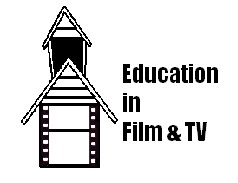The Freshman (1990), starring Matthew Broderick as Clark Kellogg, portrays the extremes that college students may go to in an effort to ease the financial burden of going to college.
The trailer can be viewed here.
Originally from Vermont, Clark catches a train to New York City by himself, with only a few pieces of luggage and $600 given to him by his parents--a notable difference when compared to today's level of consumption and doting parents of some college students. Being slightly gullible and unfamiliar with the New York City, Clark agrees to a ride to campus, only to have all of his luggage stolen by the driver, played by Bruno Kirby.
Unsure where to turn for help, Clark solicits advise from his professor. The professor, who comes off as self-centered, arrogant, and pompous, insists that despite his unfortunate situation, Clark must purchase the required readings for the semester, including a textbook authored by the professor. The books are expected to cost him $700, which is expensive even by today's standards. After hearing Clark express his concerns about being able to pay for his textbooks, his professor says, "I'm your faculty advisor, not your case worker," showing complete disregard for Clark's financial struggles.
Ironically, Clark finds the man who stole his luggage from him, who in turn offers Clark a job that pays well ($1,000 a week) and has flexible hours. As he puts it, the job is "perfect for a college student," and Clark's money woes soon disappear. Not long after he begins his new job, Clark realizes he is working for the mob boss, Carmine Sabatini, played by Marlon Brando.
Although Clark attends classes at NYU, much of his education is delivered to him "on the streets" as opposed to in the classroom. Sabatini becomes a father figure and teacher to Clark, providing him with an education that he would never receive from a formal educational setting. Ironically, the main outcome of his freshman year comes in the form of street smarts, not book smarts, even though paying for college was his main motivation for accepting the job offer.
In the end, everything works out for Clark and the Sabatini Family. Clark is able to survive his freshman year and has enough money to pay for college. His job certainly distracted him from his studies, but with friends like Sabatini, Clark needed worry about a poor academic performance.
